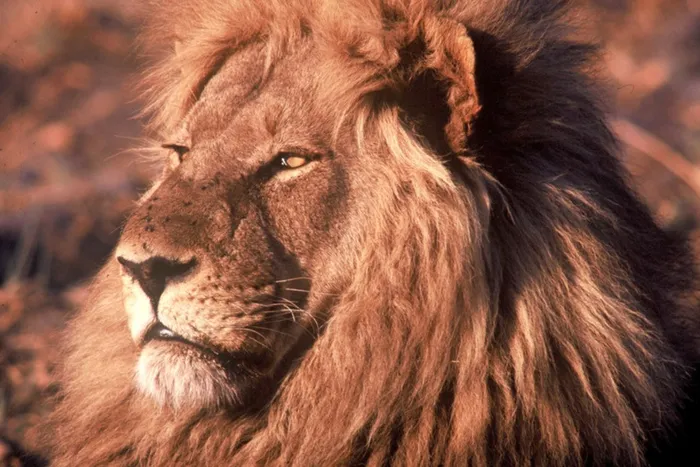Canned lions: sanctuary or slaughter?

As the government considers voluntary exit options for closing down the canned lion hunting industry, the big question is what to do with cats bred to be killed.
Durban — Lion sanctuary or slaughter? That’s one of the biggest challenges facing the government as it works its way towards closing down the canned lion hunting industry.
Euthanasia of captive-bred animals would not be considered because of the reputational risk to South Africa as a premier wildlife destination and would cause “a major uproar”.
Voluntary exit options from the lucrative industry include proposals for the cats to be placed in existing sanctuaries or that the current breeding farms are turned into sanctuaries or “lion safe havens” because they already have the necessary infrastructure.
Kam Chetty, who chairs the Ministerial Task Team on Voluntary Exit Options and Pathways from the Captive Lion Industry, said killing the lions was not a “favoured option”.
“The academics and others were saying these lions were brought up to be hunted, so euthanising them would be a much more humane option. We as a task team have rated that as a possible option, but it’s not the one most favoured by the task team.
“We think there are too many reputational risks with euthanising lions.”
He said there were an estimated 7 300 captive lions in nearly 350 facilities.
Captive lions are bred in enclosures and removed from their mothers when 15-20 days old, then hand-reared and fed until ready to be sold for hunting or other commercial purposes, said Chetty.
“After they are removed from those cages, they can be hunted anywhere around 72 hours later,” he said.
It’s a lucrative industry with hunters paying tens of thousands of dollars to shoot a lion, males being more expensive than females because of their manes.
“An animal that has a really great mane that runs down the whole face and part of the body, and if it is black and so on, fetches a very high price.”
Chetty said people would pay up to $70 000 (about R1 307 000) for these males and R290 000 to R370 000 for a female. He said in 2016, when it was still legal to export lion bones, sellers could rake in up to R100 000. He said selling the skins was also lucrative and the fat and other parts were sold to traditional healers in Africa, and one lion could “easily” fetch almost R2 million.
The task team has proposed several options to assist those who voluntarily leave the captive breeding industry. He said many breeders were also game, fruit and cattle farmers and the government could help them build their core businesses.
“Why would you want to continue in an industry that is insecure? You would rather look at business security and transform your business into something that is more acceptable.”
He said that in a voluntary exit, the health of the animals would be assessed.
“If the lions are compromised – remember, these lions may have specific ailments and disease through inbreeding – and if they live in pain, we’ve got access to professional vets that will do that assessment and recommend that it would be in the best interest to euthanise these lions, because there’s no treatment to get rid of the pain.”
Many in the captive lion industry have expressed concern that others will fill the gap in the market if there are voluntary exits.
Chetty said the department, at the request of the task team, had put together a prohibition that stipulated that no new facilities would be registered in the country and also recommended no further breeding.
“So the phase-out or the voluntary exit option, I think, is a very innovative way of preventing this from happening.”
He warned that if the government planned legislation, it would go through a long parliamentary process, and solutions needed to be found as soon as possible.
“If the industry challenges it and it goes to court, it can extend the process even longer. It’s a fairly wealthy industry and it’s likely that they would take the government to court. There has to be something in the interim.”
Global animal welfare organisation Four Paws called on Friday for an immediate moratorium on the establishment of new facilities and captive breeding, saying this was key to facilitating an effective voluntary exit from the industry.
It also urged the department to address the entire predator breeding industry, not just lions.
Four Paws South Africa director Fiona Miles said: “We are particularly concerned for the well-being of an estimated 10 000–12 000 lions and other big cat species, including an unknown number of non-native and endangered big cat species. They are housed in confined institutions across the country and will continue to suffer under the current circumstances while decisions are to be taken or should implementation be slow.”
She said that for decades, South Africa’s captive big cat industry had been allowed to develop without adequate monitoring and regulation, harming animal welfare, the country’s global reputation, and conservation and enforcement efforts in South Africa and around the world.
“The animals are bred solely for commercial purposes and have no conservation value. They are utilised in tourist attractions such as cub petting, selfies, trophy hunts, and to perpetuate the global traffic in body parts.
“South Africa is the largest exporter of big cats and their parts worldwide.
“We therefore urge expediting the recommendations and confirm our commitment to breaking the vicious cycle of exploitation of all big cats through supporting the implementation of the recommendations as outlined in the report.’’
Independent on Saturday
Related Topics: